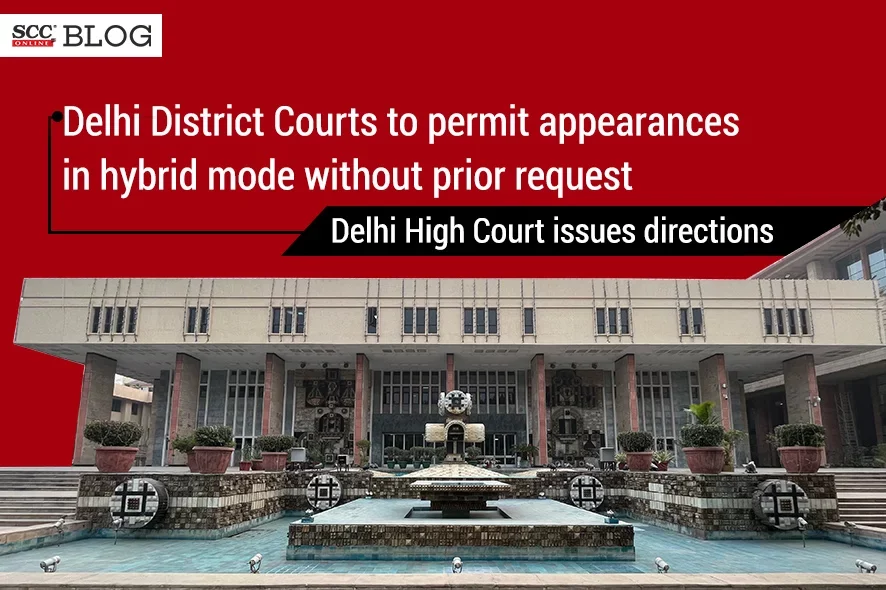Delhi High Court vide Office Order No. 01/RG/DHC/2023 dated 05-06-2023, has issued directions regarding Hybrid-hearing in Delhi District Courts. The directions are issued in partial modification of directions issued previously regarding hybrid hearing in Delhi District Courts, vide Office Order dated 11-05-2022.
The directions to be strictly adhered to by the Judicial officers in all the District Courts are as follows:
1. Delhi District Courts shall permit any of the parties and/or their counsel to appear through hybrid/ video conferencing mode during Court proceedings, without there being any requirement of a prior request for the same.
2. The hearings shall be conducted in hybrid/ video-conferencing mode in conformity with the High Court of Delhi Rules for Video Conferencing for Courts, 2021 and also bearing in mind the provisions of rhe Live Streaming and Recording of Court Proceedings Rules of the High Court of Delhi, 2022.
3. The judicial officers, while conducting hearings through hybrid/ video-conferencing mode, shall ensure that in the categories of cases mentioned hereunder, no person other than the parties and counsel of a particular case, digitally accesses or joins the proceedings of that case:
i. Matrimonial matters, child adoption and child custody including transfer petitions arising thereunder.
ii. Cases concerning sexual offences, including proceedings instituted under Section 376 of Penal Code, 1860.
iii. Cases concerning gender-based violence against women.
iv. Matters registered under or involving the Protection of Children from Sexual Offences Act, 2012 (POCSO) and under the Juvenile Justice (Care and Protection of Children) Act, 2015
v. Matters registered under or involving the Medical Termination of Pregnancy Act, 1971.
vi. In-camera proceedings as defined under Section 327 of the Code of Criminal Procedure, 1973 (CrPC) or Section 153-B or Order XXXIIA of the Code of Civil Procedure, 1908 (CPC).
vii. Matters where the bench is of the view, for reasons to be recorded in writing that publication would be antithetical to the administration of justice.
viii. Cases which in the opinion of the Bench may provoke enmity amongst communities are likely to result in a breach of law and order.
ix. Recording of evidence, including cross-examination.
x. Privileged communications between the parties and their advocates; cases where a claim of privilege is accepted by the Court; and non-public discussion between advocates.
xi. Any other matter in which a specific direction is issued by the Court.
Delhi High Court has further directed that in any given case, the parties and/or their Counsel may appear physically where in the opinion of the Court the physical presence of the parties/counsel in the Court is required or where the court is otherwise of the opinion that the matter should be heard physically in the Court, such direction must be followed by reasons recorded in writing.






